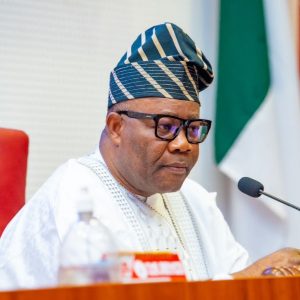Since 2022, the Obidient movement has grown into one of the most passionate and organic political forces in Nigeria’s recent democratic history. Centered around the ideals of transparency, competence, and people-focused leadership, the movement catapulted Peter Obi to a national stage during the 2023 elections.
Though he didn’t clinch the presidency, his performance surprised many and proved that millions of Nigerians especially youths are ready for a shift in the country’s political direction.
Now, as 2027 approaches, a question emerges: What is the most strategic path for Peter Obi to eventually become president? One increasingly discussed and potentially game changing option is for Peter Obi to run as Atiku Abubakar’s vice presidential candidate under a united opposition banner. While it may sound like a compromise, it could very well be the smartest route to power, reform, and ultimately, a Peter Obi presidency.
Here’s why Obidients should seriously consider this strategy:

- The Numbers Game: Unity Wins Elections
In 2023, Peter Obi split the traditional voting base of the opposition, especially in the South-East and parts of the South-South. While he did well for a third-party candidate, Nigeria’s two-round presidential system favors coalition-building and nationwide reach.
Atiku Abubakar remains a political heavyweight with deep-rooted influence in the North, especially in the North-East and North-West. A combined Atiku–Obi ticket would immediately unify the Northern and Southern opposition blocs, giving them the national spread required to defeat an incumbent or ruling party candidate especially one backed by the machinery of state.
Simply put: a fragmented opposition cannot win. But a united one? That’s a real threat.
- A Vice Presidency With Power—and Purpose
Some Obidients might worry that a vice-presidential role would diminish Obi’s ideals or influence. But that depends entirely on the agreement reached before the election. Peter Obi could negotiate a power-sharing arrangement similar to what was seen under Obasanjo–Atiku or even Buhari–Osinbajo in their early days—where the VP holds real portfolios in economic planning, infrastructure, or governance reform.
As vice president, Peter Obi would gain national executive experience, strengthen his federal reach, and show the country what governance under his influence truly looks like—paving the way for a seamless 2031 presidential bid with broader appeal and proven results.
- Rebuilding National Trust and the Electoral Map
In 2023, the South-East was politically isolated due to lack of alliances with other regions. Running as VP on a major party ticket with Atiku allows Peter Obi to rebuild cross-regional trust, particularly with the North and South-West. That’s a crucial foundation for any future president in a diverse country like Nigeria.
It also signals maturity and strategic thinking qualities voters appreciate in leaders. Instead of waiting another cycle in political limbo, Obi can remain relevant, visible, and influential in shaping the direction of the country.
- The Long Game: 2027 Is the Path, 2031 Is the Prize
Let’s be clear: Atiku is unlikely to run again in 2031. He would be in his 80s by then. If Peter Obi helps deliver victory in 2027 as VP, he becomes the natural successor backed by a united party, nationwide alliances, and a record in federal leadership.
Unlike going solo again and risking another defeat, this plan sets up a winnable succession strategy. It’s the long game that pays off and politics is all about timing, positioning, and momentum.
- Obi’s Values, Not Abandoned But Advanced
Joining Atiku does not mean Obi has abandoned his ideals. Rather, it offers him a national platform to implement those ideals from within, rather than shouting from the outside. Many Obidients admire him for his intelligence, humility, and frugality imagine those qualities guiding national economic policy, procurement processes, or youth employment programs at scale.
This is not a compromise of values; it’s a deployment of values with strategy.
Conclusion: Passion Meets Strategy
The Obidient movement has already achieved something historic: it has reshaped political discourse and reawakened young Nigerians. But passion alone doesn’t win elections. Strategy, alliances, and timing do.
If the ultimate goal is to see Peter Obi as President of the Federal Republic of Nigeria, then joining forces with Atiku in 2027 may be the most viable path to get there. A vice presidency now, a presidency next that’s not retreat. That’s chess.
It’s time for the Obidients to think not just with their hearts, but also with their heads.
Obi may lead today. But with the right move, he can rule tomorrow.
Stay ahead with the latest updates!
Join The Podium Media on WhatsApp for real-time news alerts, breaking stories, and exclusive content delivered straight to your phone. Don’t miss a headline — subscribe now!
Chat with Us on WhatsApp






